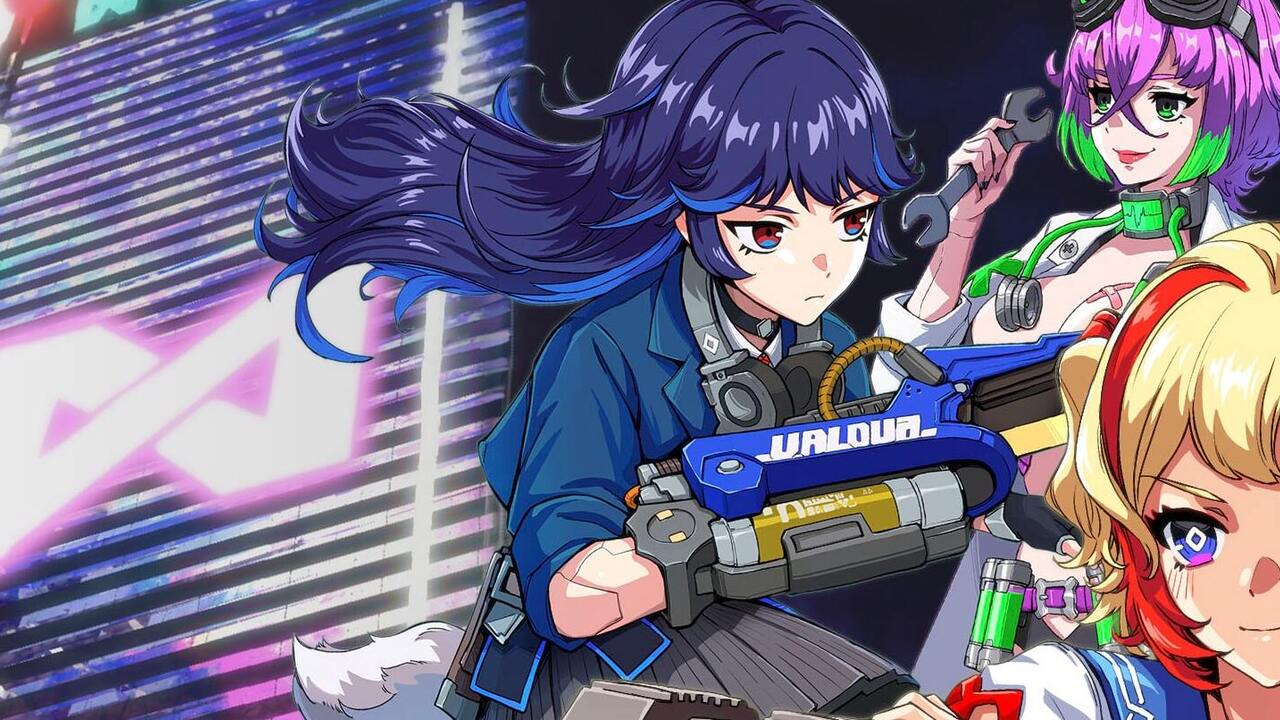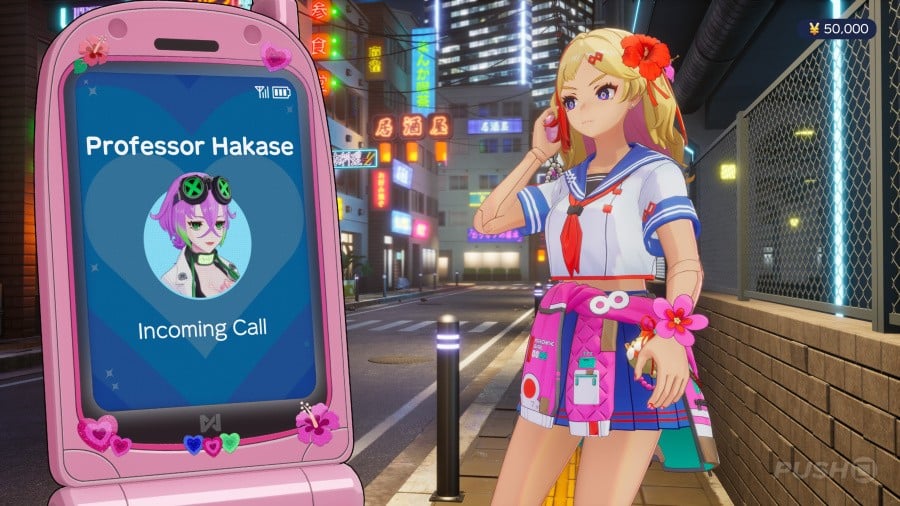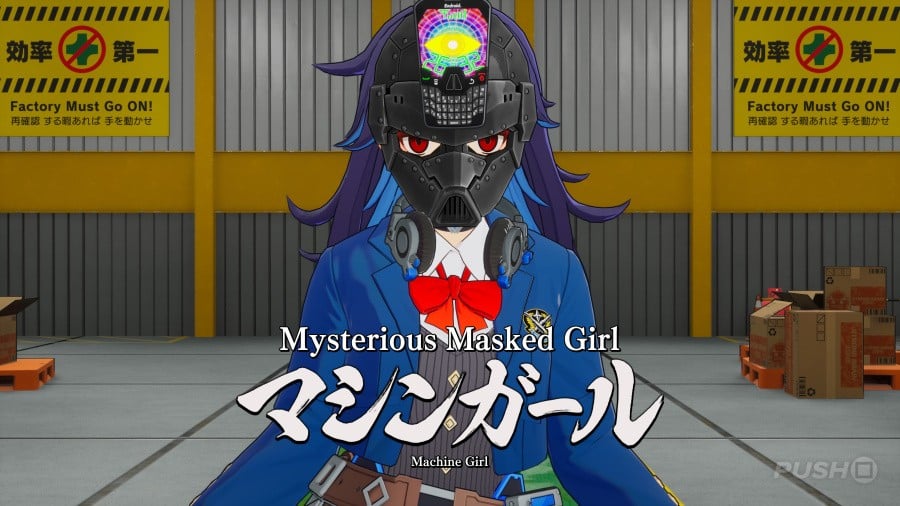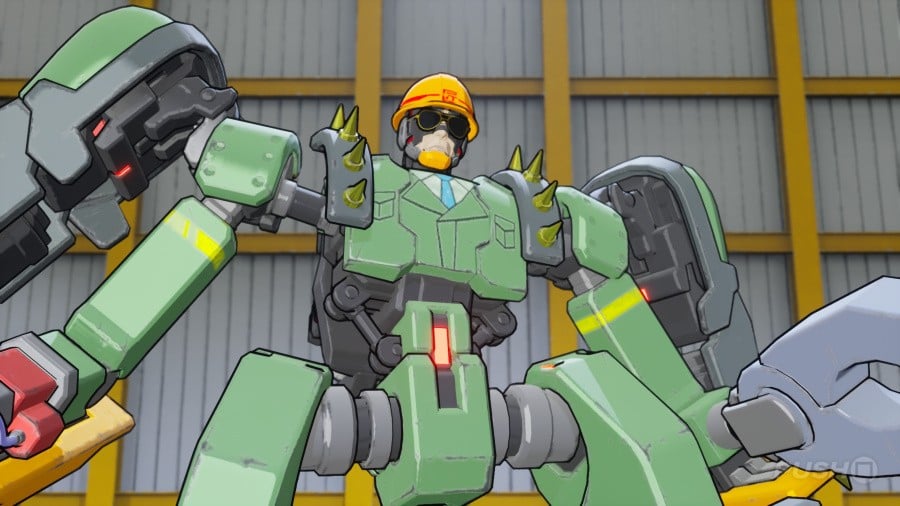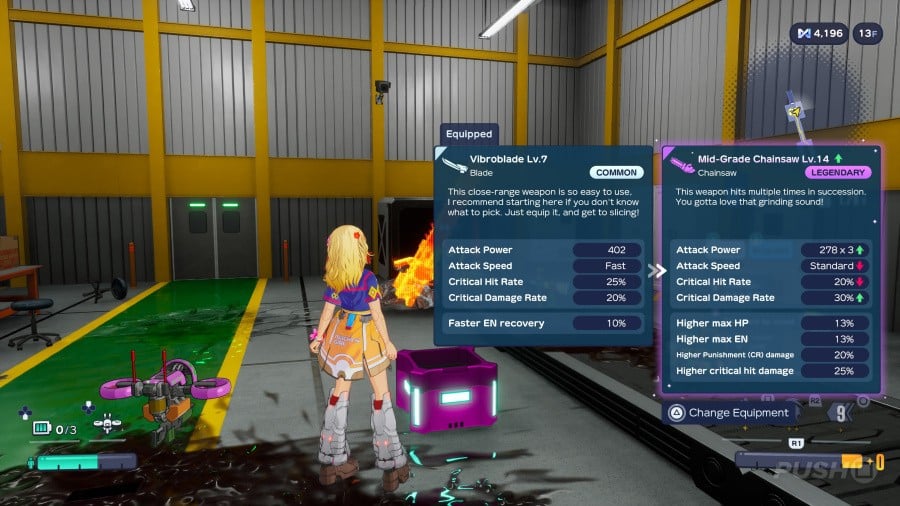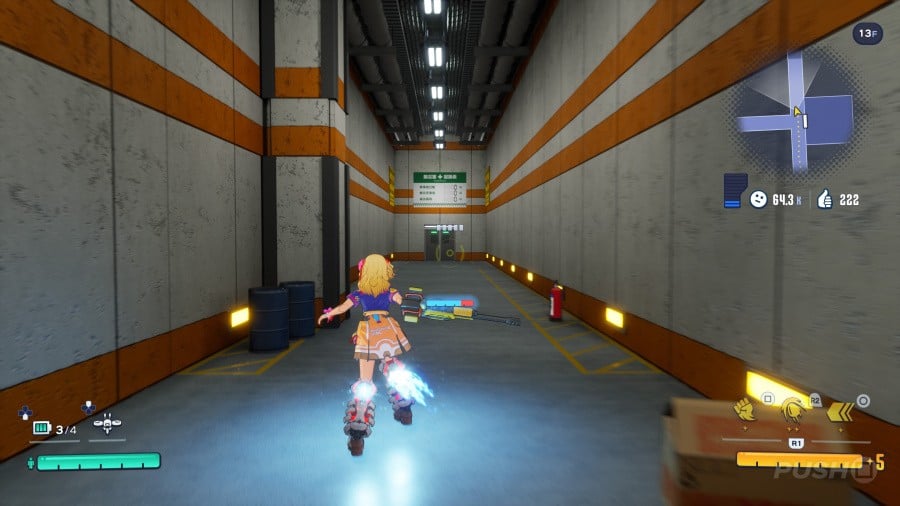For a game about robotic students raging against a sinister regime, Full Metal Schoolgirl is weirdly relatable.
The onset of AI has brought life to a horde of automaton employees known as the Working Dead, tasked by a tyrannical corporation to behave as corporate slaves.
With a single organisation controlling Tokyo’s economy, it’s up to you – one of two selectable cyber cadets equipped with chainsaw arms – to climb the corporate ladder and bring justice to its shady CEO. The only problem is it’s going to take a few attempts.
This effort from long-running Japanese developer Yuke’s is effectively Returnal for weeaboos, with a thick anime aesthetic bringing character to its familiar roguelite underpinnings.
Each floor of the fictional firm’s headquarters represents a randomly generated challenge, with combat gauntlets punctuating your progress along the way.
The gameplay blends third-person shooting with melee character action to mostly satisfying effect, although we found the default controls to be less snappy than we’d like and had to tinker with the camera acceleration settings to find the feel we wanted.
Once we’d pumped up the response of the DualSense’s sticks, we quite enjoyed the combat blend; firing from the hip feels fluid as you close the distance on your foes, before finishing them off with a series of crunchy melee strikes.
Different weapons obviously have unique parameters: axes are slow and cumbersome but pack a punch, while blades are frenetic but deal less damage. As you progress, you’ll find rare and even legendary loot with game changing parameters.
And as with any roguelite game, some of your runs will be reserved to luck. There will be occasions where you just happen upon every instrument of destruction you need, and deal devastating damage as a result. On other attempts, you’ll have to make do with what you’ve got.
There is an element of frustration, including some hazards and enemy types that made us want to toss our 30th Anniversary controller at the wall. Those flying robots that drop explosive barrels on the floor? Nightmare!
But the beauty of the game, like any great roguelite, is that each run contributes to your overall progress.
For every enemy you kill, you’ll vacuum up resources which can be spent on permanent upgrades, like health, damage, and even respawns.
The outing does waste your time a little bit early on as it’ll inexplicably deduct from the income you’ve accumulated, but once you’ve invested into reducing this, the frustration fades.
And as you make your way up the tower, you’ll encounter fresh environments and foes. That corporate aesthetic remains throughout and can get samey, but the art team has put some work in to ensure later floors feel fresh.
As you reach milestone floors, you’ll encounter bosses which bring an additional challenge. You can eventually bypass some bosses using elevator keys, though on a couple of occasions we found we were forced to replay large stretches, which grated.
It’s in these moments that the release is at its most repetitive, and while it is a game very much designed for switching off your brain, runs can be long (sometimes up to an hour or more), so it can be demoralising when you die.
At least you’re always making progress with the aforementioned augments, which are installed by a pervy doctor who appears to enjoy reaching up your skirt more than is appropriate.
One thing we should also add is that each run is presented as though it’s a livestream, with chat prompts popping up on the left side of the screen.
In some rooms you’ll get Cash Chat requests to complete it in a certain way, and doing so will net you additional money, which you can then reinvest into upgrades.
We did find as we progressed further that we were racing to the staircase to get to the next floor as fast as possible, but some of the dialogue encourages you to do that, so while there is incentive to take your time and hunt for the better loot, it can also pay to just keep pushing forward.
While we like the gameplay overall we do think it lacks that extra little refinement to push it closer towards arcade perfection.
For example, some animation transitions when you come out of a sprint don’t feel as tight as they could, and that detracts ever so slightly from its feel.
But these are relatively minor nitpicks and symptomatic of the game’s relatively low-budget approach; while this costs more than your average indie game at $49.99/£39.99, it’s also considerably cheaper than your typical AAA title too.
Conclusion
Roguelites are all about repetition, and Full Metal Schoolgirl has that “one more go” factor that makes the genre so darn compelling.
Its tongue in cheek premise resonates in these wild times, and its gameplay – with a bit of tinkering – blends character action with third-person shooting in a fresh and interesting way.
You just need to be prepared for a bit of frustration and a pinch of jank: this isn’t a straight-A student by any stretch, but its robotic heart’s in the right place.
